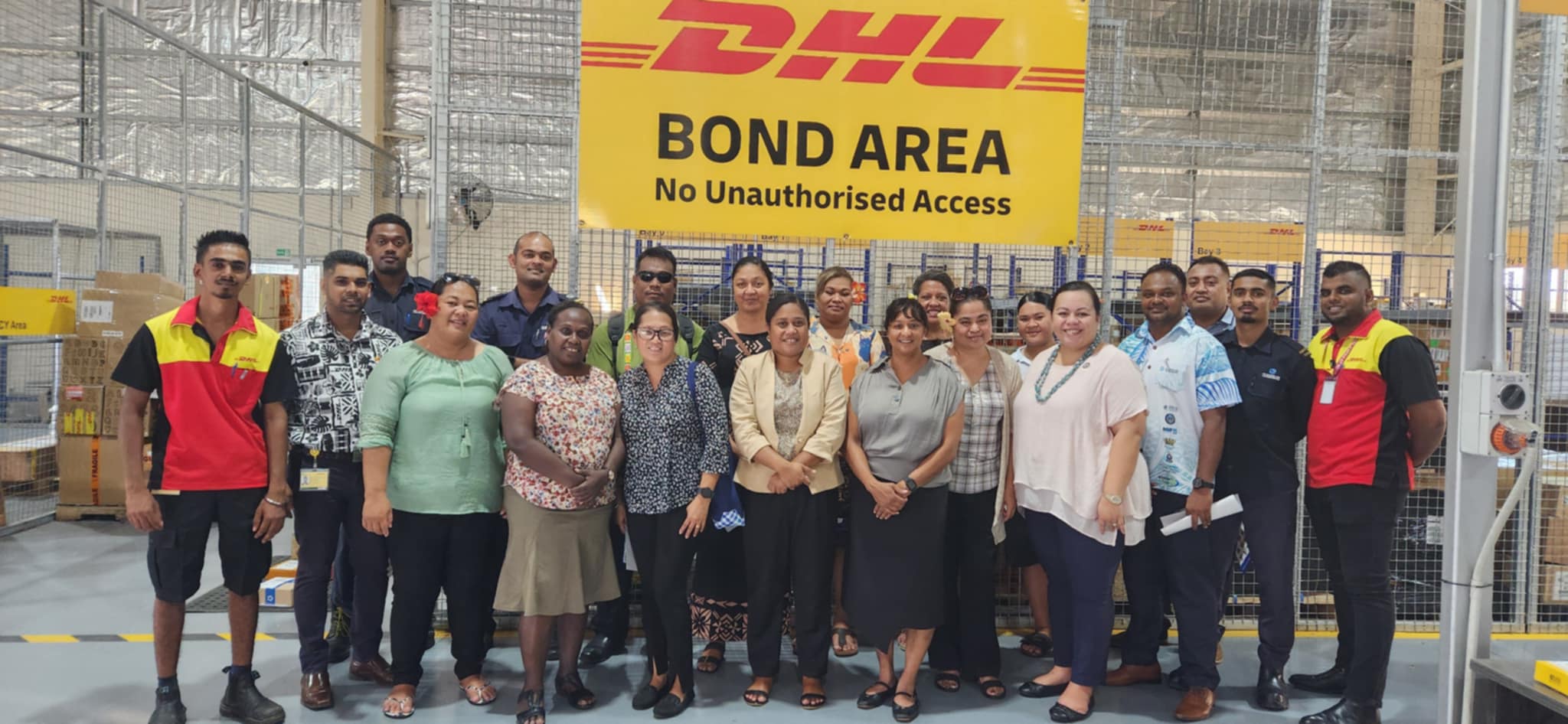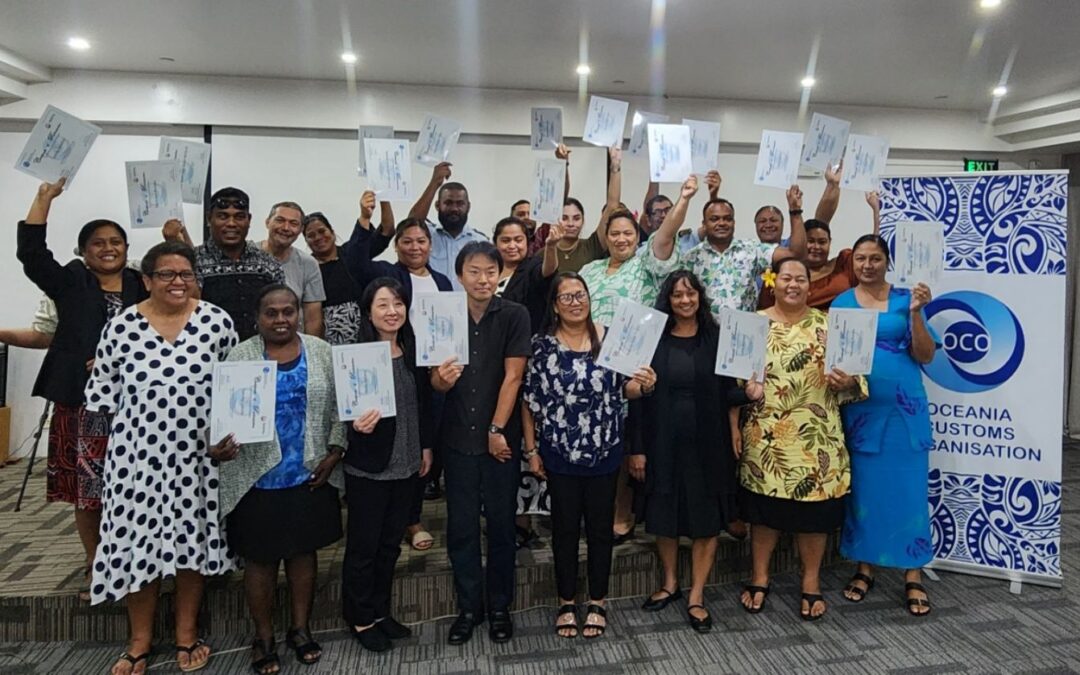Suva, Fiji- March 20, 2024– Customs officials from 16 Pacific countries are in a workshop this week to understand the WCO tools and initiatives aimed at facilitating and securing cross-border e-commerce. The Oceania Customs Organisation and the PACER Plus Implementation Unit (PPIU) are holding a five-day workshop in Nadi bringing together 25 participants from American Samoa, Australia, Cook Islands, Fiji, Papua New Guinea, Northern Marianas, Federated States of Micronesia, Kiribati, Niue, Nauru, Samoa, Solomon Islands, New Caledonia, Guam, Tonga and Tuvalu. The workshop is co-facilitated OCO, PPIU and experts from Japan Customs.
“This workshop directly supports our mission to enhance economic integration and sustainable development in the Pacific through PACER Plus,” PACER Plus Head of Secretariat, Roy Lagolago said. “While customs administrations address the regulatory aspects, PACER Plus is also focused on helping Parties to enhance legislative framework on e-commerce and support Pacific businesses seize the opportunities of digital trade. We are helping customs officers understand both sides of e-commerce thereby creating pathways for Pacific products to reach global markets while maintaining appropriate safeguards.”
According to the Pacific E-commerce Assessment Report and the Pacific Regional E-commerce Strategy and Roadmap, e-commerce in the Pacific has grown by more than 50 percent since 2020, with approximately 30 percent of Pacific Islanders now regularly shopping online. The OCO’s 2024 Gap Analysis conducted with UNCTAD and funded by the European Union, showed that small parcel shipments to the region have increased by over 200 percent in the past three years, with an estimated 85 percent of these packages valued under US$100. This surge has created challenges for customs administrations across the region, with some major ports now processing up to 5,000 small e-commerce parcels daily, according to World Customs Organization (WCO) regional data.
“As customs officials, our primary concern is implementing international standards that facilitate legitimate trade while protecting our borders,” said Ms Nancy T Oraka, Head of Secretariat for OCO. “This workshop focuses on the eight guiding principles of the WCO Framework of Standards for Cross-Border E-Commerce, which provides our members with a harmonised approach to this growing trade channel.”
This is the first Cross-Border E-Commerce workshop focused on building regional capacity to implement the WCO Framework of Standards for Cross-Border E-Commerce in the Pacific context. Both OCO and PPIU are implementing agencies of the Pacific Regional E-Commerce Strategy and Roadmap.
Customs officers learnt of advanced processing systems to manage the surge in small consignments, along with targeted risk assessment methods to quickly spot potentially dangerous or illegal shipments while keeping legitimate goods flowing smoothly. They also learnt new strategies for applying effective, efficient, scalable and flexible revenue collection models for imports of low-value and small shipments whilst also considering specific national circumstances. This is one of the cross-border e-commerce challenges facing Pacific nations today.
Key regional stakeholders including the World Customs Organisation, Pacific Islands Forum Secretariat, UNCTAD, DHL Express, and Siuhuu Online Marketplace also presented at the workshop as cross-border e-commerce requires collaboration and coordination across the public and private sectors. The workshop participants also benefitted from a site visit to the DHL facility in Nadi gaining a better understanding of ecommerce logistics and the public-private partnership between customs and DHL at work.
Workshop participants through their experiences, challenges and recommendations will develop national and regional action plans to guide OCO members in their implementation of international standards for cross-border e-commerce.
“The knowledge and strategies developed during this workshop will strengthen not just individual administration but our collective regional approach to e-commerce,” added Ms Oraka. “As our digital economy continues to grow, customs administrations must evolve to facilitate legitimate trade while addressing emerging risks.”
About OCO: The Oceania Customs Organisation is the regional body for Customs administrations in the Pacific region. OCO works to enhance the capacity and capability of its members in border security, trade facilitation, and revenue collection.

